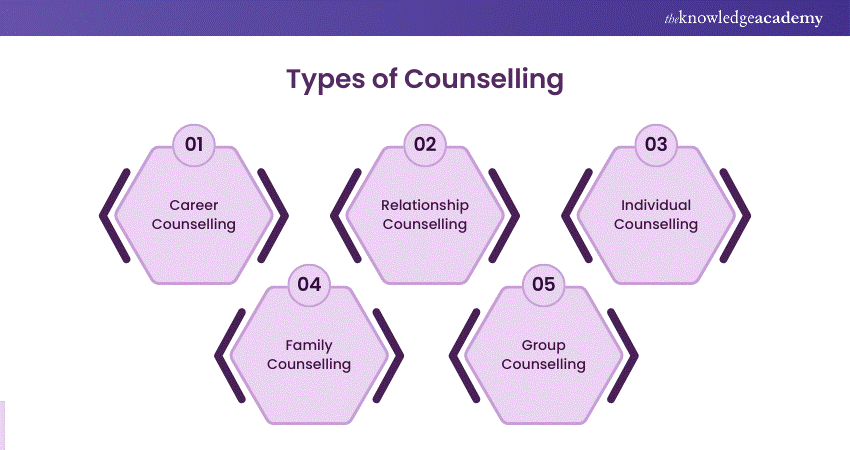Discovering the Benefits of Virtual Therapy in Modern Mental Healthcare
The surge of virtual therapy marks a significant change in psychological healthcare. It offers boosted accessibility, enabling individuals from diverse histories to seek assistance without geographical constraints. Adaptability in scheduling suits varying way of lives, while the convenience of home can promote visibility. However, the implications of these modifications prolong beyond simple benefit. The progressing landscape of therapy increases essential questions regarding its lasting impacts on patient interaction and therapy end results.
Enhanced Availability for All
Although standard therapy usually offers obstacles such as geographical place and scheduling disputes, virtual therapy considerably improves availability for people looking for psychological health assistance. By eliminating the requirement for physical travel, virtual therapy permits customers from remote locations or those with flexibility difficulties to get in touch with certified experts. This setting of therapy can get to underserved populations that may do not have regional mental wellness resources, therefore attending to differences in accessibility to care. Additionally, virtual systems can satisfy diverse requirements, providing solutions in multiple languages and fitting numerous cultural backgrounds. Customers can engage with a wider array of experts, supplying them with alternatives that line up with their specific demands and choices. This enhanced ease of access fosters an extra comprehensive atmosphere, allowing people to seek help without the stigma often connected with in-person brows through. On the whole, virtual therapy represents a considerable advancement in making mental healthcare more easily accessible to all.
Flexibility in Scheduling Procedure

As virtual therapy remains to get traction, its intrinsic versatility in organizing sessions shows to be a considerable benefit for many individuals. Unlike traditional in-person therapy, virtual therapy enables customers to pick session times that best fit their personal and professional commitments. This adaptability suits those with requiring work schedules, family members commitments, or various other dedications that can make participating in physical appointments challenging.
Furthermore, customers can conveniently reschedule or change their sessions as needed, decreasing the anxiety related to rigid consultation systems. The availability of various time ports throughout the week, including evenings and weekend breaks, additionally enhances availability. This adaptability not just urges uniformity present yet also fosters a higher dedication to the restorative procedure. Inevitably, the flexibility in scheduling sessions stands for a transformative change in psychological healthcare, encouraging individuals to prioritize their well-being without sacrificing various other facets of their lives.
Convenience of a Familiar Atmosphere
The comfort of an acquainted setting considerably boosts the effectiveness of virtual therapy for lots of customers. Engaging in therapy from the security of their very own homes allows individuals to really feel even more at simplicity, lowering stress and anxiety that may go along with typical in-person sessions. This knowledge can promote open communication, allowing customers to reveal their ideas and feelings more openly.
The visibility of personal items and the capability to control their surroundings can add to a sense of protection and relaxation. Customers typically report that remaining in a comfy room allows them to concentrate extra on the restorative procedure instead of the establishing itself.
Additionally, the casual nature of virtual sessions can help dissolve barriers that might exist in a conventional office environment, fostering a deeper link with specialists. Overall, the convenience of acquainted environments plays a necessary role in boosting the healing experience and efficiency for numerous individuals looking for psychological health assistance.
Bigger Variety Of Restorative Alternatives
A broader variety of restorative options ends up being available via virtual therapy, enabling customers to gain access to various methods that might not be practical in conventional settings. This adaptability allows individuals to discover varied approaches such as cognitive-behavioral therapy, mindfulness techniques, art therapy, and even specialized interventions like trauma-informed treatment or dialectical behavior therapy.
Customers can pick from a wider range of therapists, consisting of those who specialize in specific niche areas or details populations, boosting the likelihood of finding an appropriate suit. Virtual systems often supply access to group therapy sessions, assistance areas, and workshops that may be geographically unavailable or else.
This variety equips clients to take part in their recovery process according to their unique choices and needs, potentially raising inspiration and commitment to therapy. Because of this, the landscape of mental health and wellness treatment comes to be more inclusive and versatile, catering to a bigger array of individual experiences and challenges.
Reduced Preconception Surrounding Therapy
Accessing therapy with virtual systems adds to a significant decrease in the preconception typically connected with psychological wellness treatment. By offering a discreet and private atmosphere, virtual therapy enables individuals to seek aid without the worry of being evaluated or identified. This anonymity charms to those that may or else think twice to go after in-person therapy because of social assumptions surrounding mental wellness.
Additionally, as the prevalence of virtual therapy increases, it normalizes the conversation around mental health, making it an extra appropriate part of daily life. People typically feel more comfy discussing their experiences online, promoting openness and minimizing feelings of isolation. The accessibility of these solutions likewise encourages a wider market to engage with psychological health sources, cultivating a society of assistance rather than shame. Ultimately, the rise of virtual therapy plays an important function in improving attitudes towards looking for aid, adding to an extra accepting society pertaining to mental health difficulties.
Cost-Effectiveness and Price

Minimized Session Costs
Several individuals looking for mental health support locate that virtual therapy considerably decreases session expenses compared to traditional in-person choices. The elimination of traveling expenses and time off work frequently adds to total savings. In addition, many virtual specialists provide affordable rates because of reduced overhead expenses linked with maintaining a physical workplace. This change in expense allows clients to accessibility high quality psychological health and wellness services without the monetary pressure that might feature conventional therapy. For several, this cost makes it possible for much more frequent sessions, which can improve treatment results. Because of this, virtual therapy not only democratizes access to mental health and wellness treatment yet also gives a sustainable monetary version that aligns with customers' spending plans, making mental health assistance a lot more achievable for a broader target market.
Increased Access Options
While traditional therapy often provides logistical barriers, virtual therapy greatly increases gain access to choices for individuals looking for mental healthcare. By removing the need for traveling and enabling versatile scheduling, virtual therapy suits diverse way of lives and commitments. This ease of access is especially helpful for those in remote locations or with mobility challenges. Additionally, the cost-effectiveness of virtual therapy reduces financial strain, making mental health and wellness services a lot more obtainable. Numerous systems offer tiered prices or gliding scale charges, advertising affordability. Insurance coverage business increasingly acknowledge virtual therapy, more boosting its monetary accessibility. In general, virtual therapy not only broadens the scope of who can obtain treatment but additionally addresses economic barriers, making mental wellness assistance a lot more inclusive and possible for all.
Boosted Continuity of Treatment
Enhanced continuity of care becomes a substantial advantage of virtual therapy in contemporary psychological healthcare. This technique permits people to keep constant communication with their specialists, regardless of geographical obstacles or scheduling conflicts. relationship therapy. The flexibility of virtual sessions fosters routine check-ins, which are necessary for monitoring progression and adjusting treatment intends as required
In addition, electronic wellness records and telehealth systems help with smooth information sharing amongst care companies. This interconnectedness assures that all specialists associated with a patient's care are updated on therapy developments, causing more collaborated and reliable treatments.
Individuals typically experience lowered stress and anxiety and increased interaction as a result of the ease of accessing therapy from familiar atmospheres. Such availability boosts adherence to therapy programs, inevitably improving results - couples counselling. To sum up, virtual therapy not only bridges gaps in mental health and wellness services however likewise fortifies the connection of treatment, a vital component of successful restorative relationships
Often Asked Questions
Exactly How Does Virtual Therapy Guarantee Discretion and Privacy for Clients?
The existing question addresses the actions virtual therapy utilizes to protect customer confidentiality. Using encrypted systems, secure logins, and compliance with guidelines like HIPAA, virtual therapy guarantees that sensitive details remains exclusive and hard to reach to unauthorized people.
Can I Switch Therapists Quickly in Virtual Therapy?
Changing specialists in virtual therapy is generally simple. Clients can communicate their need for an adjustment with the system, enabling for versatility in finding a better suit without the logistical difficulties of in-person appointments.
What Technology Do I Need for Virtual Therapy Procedure?
To join virtual therapy sessions, a specific usually requires a trusted internet connection, a computer system or smart device with a cam and microphone, and access to a safe and secure video pop over to these guys clip conferencing platform defined by their therapist.

Are Virtual Therapy Procedure as Effective as In-Person Procedure?
Current research studies suggest that virtual therapy sessions can be similarly efficient as in-person sessions, depending upon the click site individual's choices and situations. Variables such as comfort and access might improve the total restorative experience for some customers.
What Should I Do if I Experience Technical Issues Throughout a Session?
If technical issues develop during a session, one ought to calmly connect the trouble to the specialist, attempt to reconnect, or switch to a backup method. Perseverance and versatility are necessary in handling these disturbances.